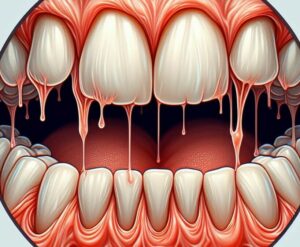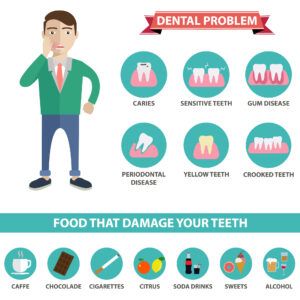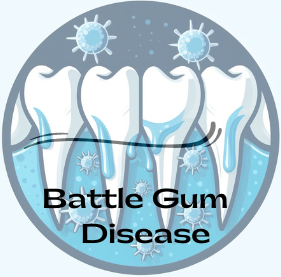
I’m going to start the discussion by addressing the fact that gum disease is an issue that is very important to the health of your teeth. This is about more than just a few swollen gums—it’s about keeping your smile healthy over time. Now, many of us may not take gum disease seriously, as I didn’t, until it begins to create significant problems. The worst part is that if you identify the symptoms early on, your chances of keeping your teeth in their proper place in your mouth are significantly improved.
So what are we diving into today? We are diving into the waters of what the symptoms of gum disease are. These are the red flags that your gums are waving. I’m hoping you’ll pay attention and take action as I should have. Knowing what to look out for can make a world of difference. Whether it’s gums that bleed easier than a teardrop on a guitar string or bad breath that could knock out a heavyweight champion, understanding these symptoms is your first line of defense.
You’re going to find out about all the warning signs, from the mild ones that might just seem like a nuisance to the ones that scream, ‘Get to the dentist, stat!’ You’ll see how to spot these signals early and why that’s a game-changer for your dental health, as you read further.
Recognizing the Early Signs of Gum Disease
Identifying the early signs of gum disease isn’t just about maintaining a winning smile; it’s a critical step in preserving your overall dental health. This sneaky condition doesn’t shout; it often whispers, with sneaky symptoms that can easily go unnoticed if you’re not paying attention. So watch out for your bleeding and painful gums.
You might think that gums bleeding during brushing or flossing is no big deal, something that ‘just happens sometimes.’ However, consider this a red flag: healthy gums shouldn’t bleed from routine cleaning. If yours does, it’s a telltale sign of gingivitis, the earliest stage of gum disease.
Now, let’s talk about the state of your gums. Are they looking a little more ‘sunset’ than ‘pearly pink’? Red, swollen, or tender gums are sounding the alarm that something is amiss. Inflammation is a response to the harmful bacteria loitering around your gums, and it’s your body’s way of telling you to take action.
Bad breath or a persistent bad taste in your mouth could also be a sign of gum disease. It’s easy to brush this off as a consequence of that garlic-loaded pasta last night, but if it’s consistent, you might be dealing with more than just a culinary aftermath.
Acknowledging these early warning signs is pivotal. At the first hint of trouble, sidestep the risk of serious complications by consulting with a dental professional. It’s one of the most straightforward actions you can take for long-term oral health. And trust me, it’s worth saving your teeth for.
Understanding the Consequences of Untreated Gum Disease

If you think skipping the floss for a few nights isn’t a big deal, let’s consider what could happen if gum disease goes unchecked. Untreated gum disease can evolve from a simple nuisance into a serious threat to your oral and overall health. Initially, you might deal with gingivitis, where the gums have redness and swelling. But when gingivitis is ignored, it can escalate to periodontitis, which is the condition of my gums. That is way more than an awkward social situation for your mouth.
Periodontitis isn’t just a fancy word; it’s a condition where the ligaments and bones that support your teeth are under attack, risking tooth loss and bone damage. Imagine the structures holding your teeth in place and waving white flags. It’s not a pretty picture and, unfortunately, not just a threat to your smile. Tooth loss can affect your ability to chew and speak properly, and that’s just the beginning.
Now, let’s talk body-wide impact. We’re not just chewing the fat here; science shows that the bacteria responsible for gum disease can enter your bloodstream and tango with other systems in your body. This can potentially contribute to some serious conditions, such as heart disease, stroke, and diabetes complications, making it a full-body affair. I personally never thought that issues pertaining to poor oral hygiene would have an effect on overall health.
And it’s not all about the physical effects. Living with gum disease can be a real blow to your confidence. You’re less likely to flash a smile if you’re worried about what’s going on with your gums. It’s about your well-being, too; we can’t ignore the psychological aspect where gum disease muddles with your mind, making social interactions more stressful than they need to be.
So, it’s crucial to pick up on these clues your body is giving you. Know when it’s time to seek professional dental care; it could save not just your smile but also support your overall health. In the next section, I’m going to help you figure out exactly when to wave the white flag and march into your dentist’s office for some much-needed support.
When to Seek Professional Dental Care
To be honest with you, gum disease is a serious condition. If your gums often bleed when you brush or floss, or if you’ve noticed that they’re red and swollen, it’s time to chat with your dentist. It’s not just about unsightly gums or discomfort; it’s also about preventing more serious health issues unrelated to your oral hygiene.
Regular check-ups are as crucial to your teeth as oil changes are to your car; they keep things running smoothly. Because of my gum situation, I need to visit my dentist every three months. And that can be quite expensive. By skipping dentist visits, you’re not just risking cavities but also the chance to catch gum disease early, when it’s easiest to treat.
When you visit your dentist because you’re worried about gum disease, they’ll do more than just nod and smile. They’ll assess the situation by checking the depth of the space between your teeth and gums, looking for inflammation, and maybe even taking X-rays to see if there’s any bone loss.
Talking about treatment options with a dental professional can lead to a variety of paths. Depending on your condition, they might suggest a deep cleaning process called scaling and root planing, prescribe a course of antibiotics, or, in more severe cases, recommend surgical options.
This section isn’t just a nudge to see your dentist; it’s a reality check. Don’t wait until you’re in pain or your teeth start moving around. The sooner you address gum disease, the more straightforward and less expensive the solutions can be.
Conclusion: Taking Control of Your Dental Health
If you’ve stuck with me on the path this far, you’re now more aware of the signs and risks of gum disease. It’s key to recognize that your dental health is in your hands, and managing the symptoms of gum disease isn’t just about reacting to problems; it’s about proactive prevention.
When symptoms do arise, it’s important to get them assessed by a dental professional. Following a dentist’s recommendations can prevent the condition from worsening. Two common treatments they might suggest are scaling and root planing and antimicrobial medication, which I personally have been through.
Scaling and root planing is where a dentist will deep-clean the surfaces of your teeth and roots, scraping away plaque and tartar from below the gum line. It might sound a bit daunting, but it’s a highly effective procedure to restore gum health.
For bacterial infections, your dentist may prescribe antimicrobial medications. These can come in various forms, such as mouth rinses or gels that are applied directly within the gum pockets after scaling and root planing. There are good supplements you can order online that will help reduce or eliminate harmful bacteria from your mouth and significantly help prevent more serious issues down the road.
Let’s not forget that your daily habits make all the difference. Brushing and flossing regularly, visiting your dentist for routine cleanings, and adjusting your diet are your best defenses against gum disease.
Remember, your first steps don’t have to be leaps; small, consistent measures can yield significant benefits over time. And as much as I’ve emphasized the seriousness of gum disease, don’t worry too much; knowledge is power, and you’re already empowering yourself by understanding what to watch for and how to respond.
It is my sincere goal that you will feel empowered to manage your dental health and keep your bright smile. Try to incorporate these habits into your life and witness the beneficial results for yourself.
“Here’s a little transparency: Our website contains affiliate links. This means if you click and make a purchase, we may receive a small commission. Don’t worry, there’s no extra cost to you. It’s a simple way you can support our mission to bring you quality content.”
